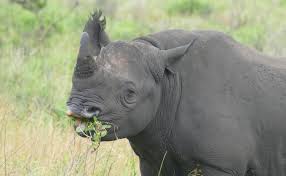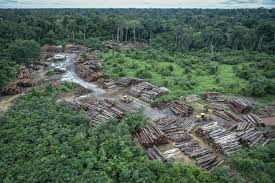As European settlers moved around the world, they often treated the local population badly. In a significant portion of the world this bad behaviour took the form of small parts of the land being given to the the local population and the rest of the country being taken by the Settlers.
In some places such as America, Many of these tribes have since used their land to run casinos and other things not allowed, outside the reserve. In other words these Reserves are less like the land would have been without the Europeans than if it was not tribal land.
There are similarly huge areas of tribal Or indigenous land around much of the Land that European settled, be that in Canada or Africa or or Australia. In parts of Africa and Australia those indigenous people who wish to continue to live as they always have, can choose to do so. Giving this land to the indigenous people was considered only fair, given how much land that they were losing. However in many of these places this indigenous land was also expected to remain in its wild state. Brazil still has a huge number of indigenous people, living in their tribes as they have done for millennia. Not only have many of these tribes thrived under this system, but they have also been far better at managing the forest within their reserves than outside their control.
For bolsonaro, these indigenous reserves are totally unacceptable. Being huge areas that are often totally outside the control of the Brazilian government and with the current rules unavailable for any of the Descendants of settlers to use.
Around the world it is not unusual when a road is built through a protected Forest that the area is rapidly deforested and often settled within several years. It would appear that this is what is wanted on this occasion to- forget simply building roads bolsonaro is giving permission for farms to be set up on these lands, As well as mining, and fossil fuel extraction. Not only with the indigenous people get no money for the land that is being stolen, but also they would gain nothing from the resources extracted.
In theory the bill does give the people a chance to give their feedback, but they have no veto to stop things done to their land.
Interestingly this also talks about the land being used for tourism. However any tourist worth their salt should be looking to do their trips that benefit the indigenous people and not help steal their land.
This is not the first time that bolsonaro has try something like this. Last year he tried to move control over. What is done with the land from the indigenous people to the agricultural ministry.
Yet, this was blocked by the most senior judges in Brazil who said it was not allowed.
Given that this latest move appears to be identical but done in a different way it should also be blocked. However Given that it is led by the president. We cannot be confident that the damage he is trying to do will be stopped until he can be removed from office.
If you visit Brazil on on a holiday, you must make sure that you do not compound to the damage being done but Instead visit places that will benefit the local indigenous people and the protection of the rainforest.
















